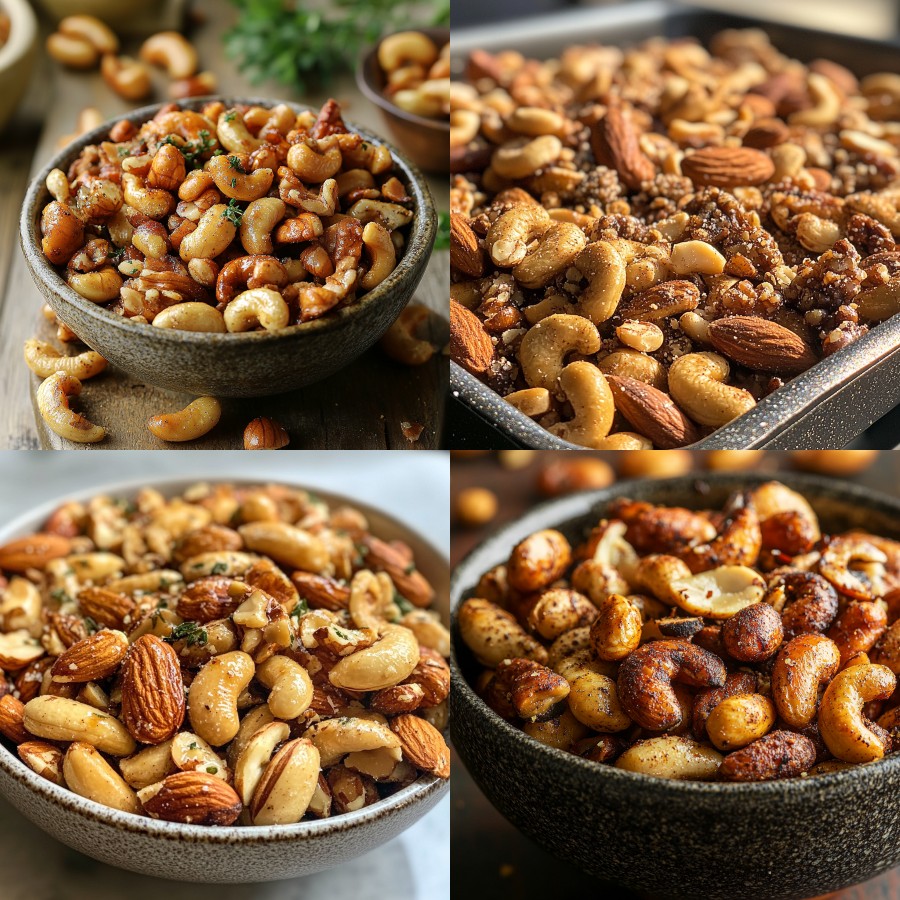Introduction
Type 2 diabetes is a chronic condition characterized by insulin resistance and impaired glucose metabolism. Affecting millions globally, it leads to severe complications, including cardiovascular disease, neuropathy, and renal failure. Managing type 2 diabetes often involves lifestyle changes, medications, and continuous monitoring of blood glucose levels. However, recent research has shed light on surprising and effective strategies that can significantly improve diabetes management. This article outlines 12 scientifically backed methods to help manage type 2 diabetes, including several unexpected insights that might change your approach to this condition.
1. Intermittent Fasting: More Than Just Weight Loss

Intermittent fasting (IF) has gained popularity primarily for weight loss, but emerging research indicates it can also improve insulin sensitivity and glycemic control in people with type 2 diabetes. IF involves cycles of eating and fasting, which can help reduce insulin resistance, lower blood glucose levels, and even promote pancreatic β-cell regeneration. A study published in Diabetes Care found that IF significantly improved blood glucose levels and reduced insulin requirements in individuals with type 2 diabetes .
2. The Role of the Gut Microbiome: A New Frontier in Diabetes Management

The gut microbiome has emerged as a critical player in metabolic health, with growing evidence linking it to type 2 diabetes. An imbalance in gut bacteria can contribute to insulin resistance and chronic inflammation, both key factors in diabetes progression. Probiotics, prebiotics, and dietary fibers can modulate the gut microbiome, promoting a healthier balance of bacteria. A study in Nature Medicine demonstrated that specific strains of gut bacteria are associated with improved glycemic control, suggesting that targeting the microbiome could be a promising approach to managing type 2 diabetes .
3. The Impact of Sleep Quality: A Hidden Factor in Blood Sugar Control

Sleep quality is often overlooked in diabetes management, yet it plays a crucial role in regulating blood sugar levels. Poor sleep can lead to increased insulin resistance, elevated blood glucose levels, and impaired glucose metabolism. A study in the Journal of Clinical Endocrinology & Metabolism found that sleep deprivation reduces insulin sensitivity by up to 25%. Improving sleep hygiene, such as maintaining a regular sleep schedule and creating a conducive sleep environment, can therefore have a significant impact on diabetes control .
4. Stress Management: Reducing Cortisol to Improve Insulin Sensitivity
Chronic stress is a well-known contributor to elevated blood glucose levels, as it triggers the release of cortisol, a hormone that increases blood sugar. Stress management techniques such as mindfulness meditation, yoga, and deep breathing exercises can lower cortisol levels and improve insulin sensitivity. A study published in Diabetes Spectrum highlighted that stress reduction interventions led to improved glycemic control in patients with type 2 diabetes, underscoring the importance of psychological well-being in diabetes management .

5. Brown Fat Activation: A Novel Approach to Glucose Regulation
Brown adipose tissue (brown fat) has the unique ability to burn glucose and generate heat, making it a potential target for type 2 diabetes management. Unlike white fat, which stores energy, brown fat increases energy expenditure and improves glucose metabolism. Recent studies suggest that cold exposure, as well as certain dietary components like capsaicin, can activate brown fat, thereby enhancing glucose utilization and improving insulin sensitivity. Research in Nature indicates that brown fat activation could be a novel therapeutic strategy for diabetes .

6. The Power of Plant-Based Diets: A Nutritional Approach to Diabetes

Plant-based diets, rich in whole grains, legumes, fruits, and vegetables, have been shown to improve insulin sensitivity and reduce the risk of type 2 diabetes. These diets are high in fiber, antioxidants, and phytochemicals, which contribute to better blood sugar control and reduced inflammation. A study in the Journal of Geriatric Cardiology found that plant-based diets were associated with a 34% reduction in the risk of developing type 2 diabetes, and for those already diagnosed, it helped improve glycemic control .
7. Exercise Beyond the Gym: The Benefits of Non-Exercise Activity Thermogenesis (NEAT)

While structured exercise is a cornerstone of diabetes management, non-exercise activity thermogenesis (NEAT) — the energy expended during daily activities such as walking, fidgeting, and even standing — plays an equally important role. NEAT can account for a significant portion of daily calorie expenditure and has been shown to improve insulin sensitivity. A study in Diabetes Care highlighted that increasing NEAT through simple changes, like standing more often and taking short walks, can significantly enhance glucose metabolism .
8. The Surprising Benefits of Vinegar: A Simple Addition to Your Diet

Vinegar, particularly apple cider vinegar, has been shown to improve postprandial (after-meal) blood glucose levels. The acetic acid in vinegar slows the digestion of carbohydrates and enhances insulin sensitivity, leading to lower blood sugar spikes after meals. A study published in Annals of Nutrition & Metabolism found that consuming vinegar before a high-carbohydrate meal significantly reduced blood glucose levels in people with type 2 diabetes. Incorporating vinegar into meals as a salad dressing or marinade can be a simple and effective strategy for blood sugar management .
9. The Role of Magnesium: A Critical Nutrient for Glucose Control

Magnesium plays a vital role in glucose metabolism and insulin action. Low magnesium levels have been linked to insulin resistance and poor glycemic control. A study in Diabetes Metabolism found that magnesium supplementation improved insulin sensitivity and reduced fasting blood glucose levels in individuals with type 2 diabetes. Increasing dietary intake of magnesium-rich foods, such as leafy greens, nuts, seeds, and whole grains, can therefore be beneficial for diabetes management .
10. Intermittent Hypoxia Training: A Novel Exercise Strategy

Intermittent hypoxia training (IHT), which involves exposing the body to short bouts of low oxygen levels, has shown promise in improving glucose metabolism and insulin sensitivity. This training mimics the effects of high-altitude environments and can enhance the efficiency of glucose uptake by muscles. A study in Diabetes Research and Clinical Practice found that IHT significantly improved glycemic control in people with type 2 diabetes, making it an intriguing addition to traditional exercise routines .
11. Cinnamon: A Spice with Potent Glucose-Lowering Effects

Cinnamon has been widely studied for its potential role in managing blood glucose levels. It contains bioactive compounds that mimic insulin and improve glucose uptake by cells. A meta-analysis published in the Journal of Medicinal Food concluded that cinnamon supplementation significantly reduces fasting blood glucose levels and improves insulin sensitivity in people with type 2 diabetes. Adding cinnamon to your diet, whether in coffee, oatmeal, or smoothies, can be an easy and natural way to support diabetes management .
12. Omega-3 Fatty Acids: Anti-Inflammatory Powerhouses
Omega-3 fatty acids, found in fatty fish, flaxseeds, and walnuts, have anti-inflammatory properties that can help manage type 2 diabetes. Chronic inflammation is a key contributor to insulin resistance and the progression of diabetes. A study published in Diabetes Care found that omega-3 supplementation improved insulin sensitivity and reduced markers of inflammation in people with type 2 diabetes. Incorporating omega-3-rich foods into your diet can therefore play a critical role in managing the condition

Conclusion
Managing type 2 diabetes requires a multifaceted approach that goes beyond medication and standard dietary advice. As research continues to uncover new strategies, individuals with type 2 diabetes have more tools at their disposal to achieve better glycemic control and improve their overall health. From the surprising benefits of intermittent fasting and vinegar to the critical roles of the gut microbiome and brown fat, these 12 strategies offer a comprehensive and scientifically backed guide to managing type 2 diabetes effectively.
References:
- Sutton EF, Beyl R, Early KS, Cefalu WT, Ravussin E, Peterson CM. Early Time-Restricted Feeding Improves Insulin Sensitivity, Blood Pressure, and Oxidative Stress Even Without Weight Loss in Men with Prediabetes. Cell Metab. 2018;27(6):1212-1221.
- Larsen N, Vogensen FK, van den Berg FW, et al. Gut microbiota in human adults with type 2 diabetes differs from non-diabetic adults. PLoS One. 2010;5(2)
. - Broussard JL, Ehrmann DA, Van Cauter E, Tasali E. Impaired Insulin Signaling in Human Adipocytes After Experimental Sleep Restriction: A Randomized, Crossover Study. Ann Intern Med. 2016;164(8):493-500.
- Holt-Lunstad J, Smith TB, Layton JB. Social Relationships and Mortality Risk: A Meta-analytic Review. PLoS Med. 2010;7(7)
. - Yoneshiro T, Aita S, Matsushita M, et al. Recruited brown adipose tissue as an antiobesity agent in humans. J Clin Invest. 2013;123(8):3404-3408.
- Satija A, Bhupathiraju SN, Spiegelman D, et al. Healthful and Unhealthful Plant-Based Diets and the Risk of Coronary Heart Disease in U.S. Adults. J Am Coll Cardiol. 2017;70(4):411-422.
- Heden TD, Liu Y, Park Y-M, et al. Exercise Training Promotes Healthy Weight Loss but Descent to a Healthier Gut Microbiome in Obese

